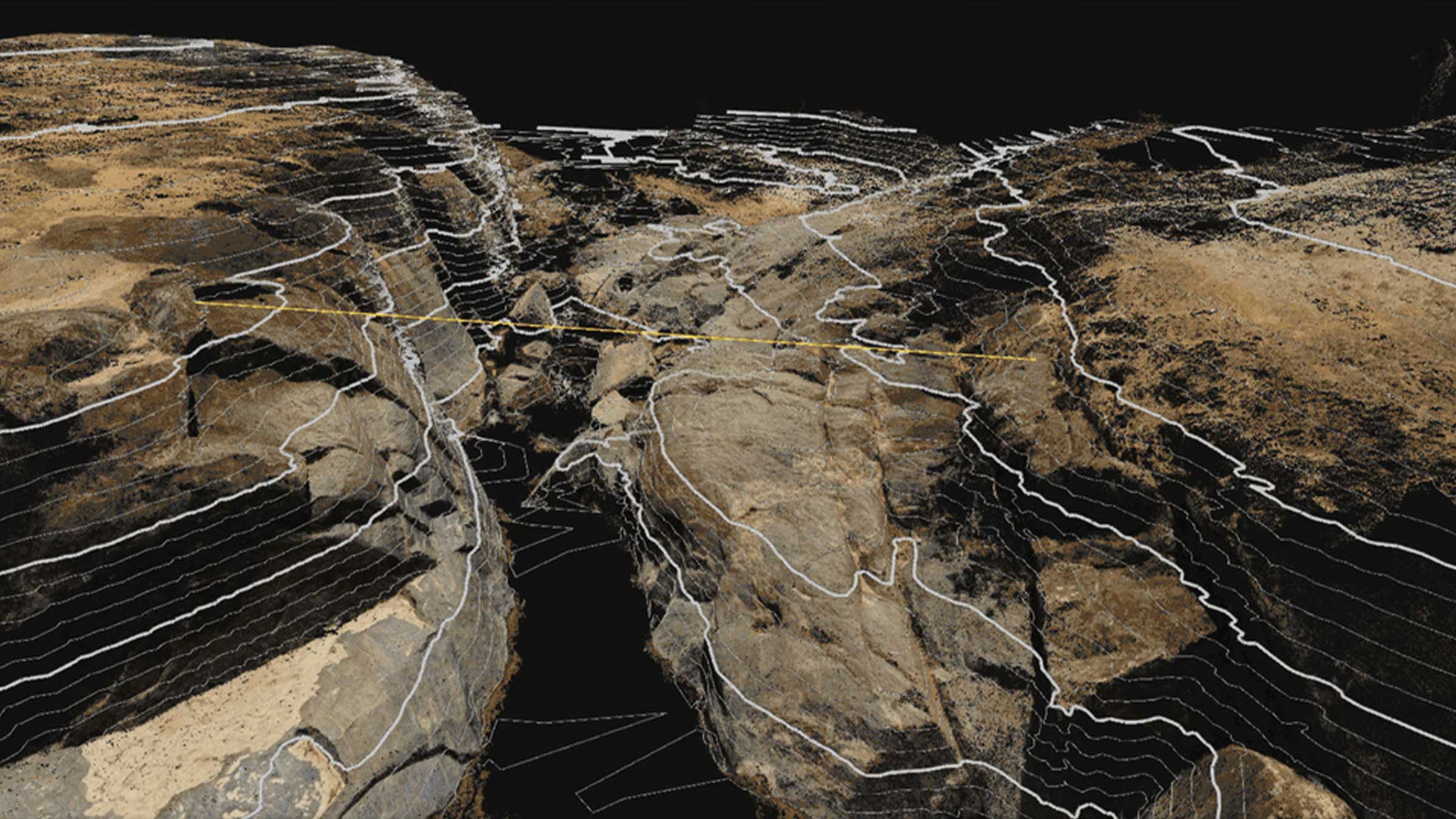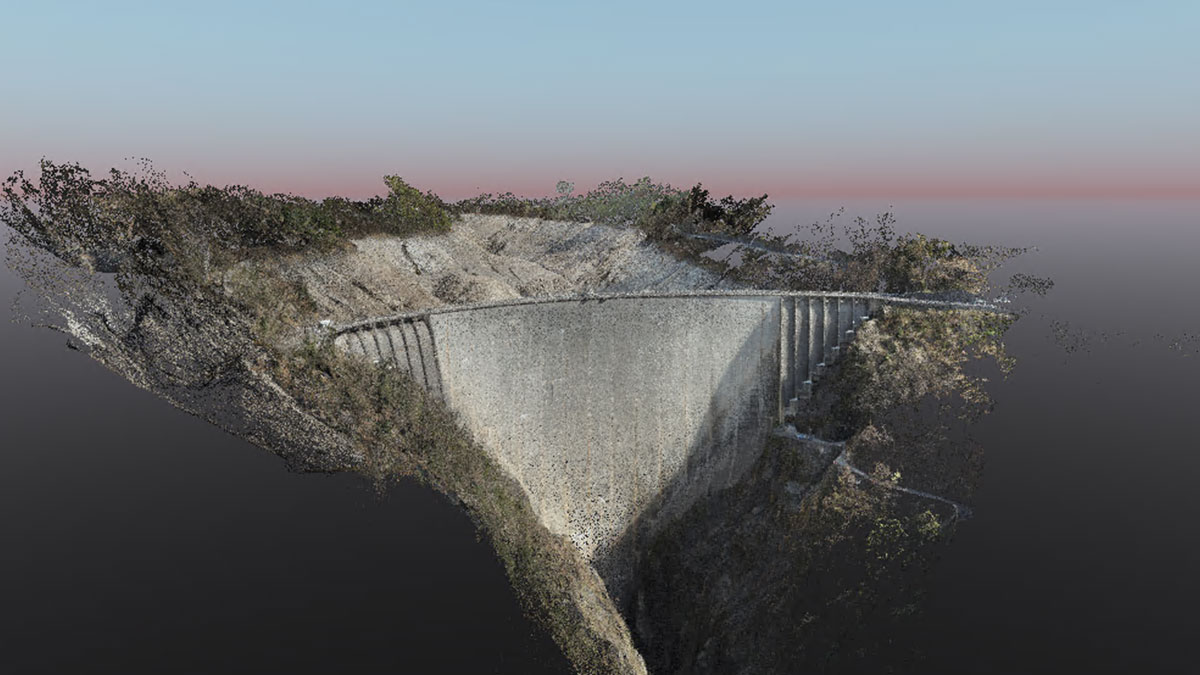Fighting disease: mosquito control with photogrammetry
Mosquito-borne illnesses like West Nile virus and Dengue fever present a rising threat in California due to warming weather. Mosquito season has grown due to climate change, and there is no longer a time when mosquitoes aren’t present. Given the insects' ability to mature from egg to adult in just one week, timing is of the essence when combating them, and traditional methods of control have proven slow and inefficient.
As a result, the Los Angeles-based father-and-son team at West Coast Aerial Photography, Inc., has adopted a new, more efficient technique utilizing an unusual service: aerial mapping.
Mapping mosquito hotspots
West Coast Aerial Photography, Inc. is run by Mark Holtzman, an award-winning aerial photographer and commercial pilot, and his son Steven, who manages all technical operations on the ground.
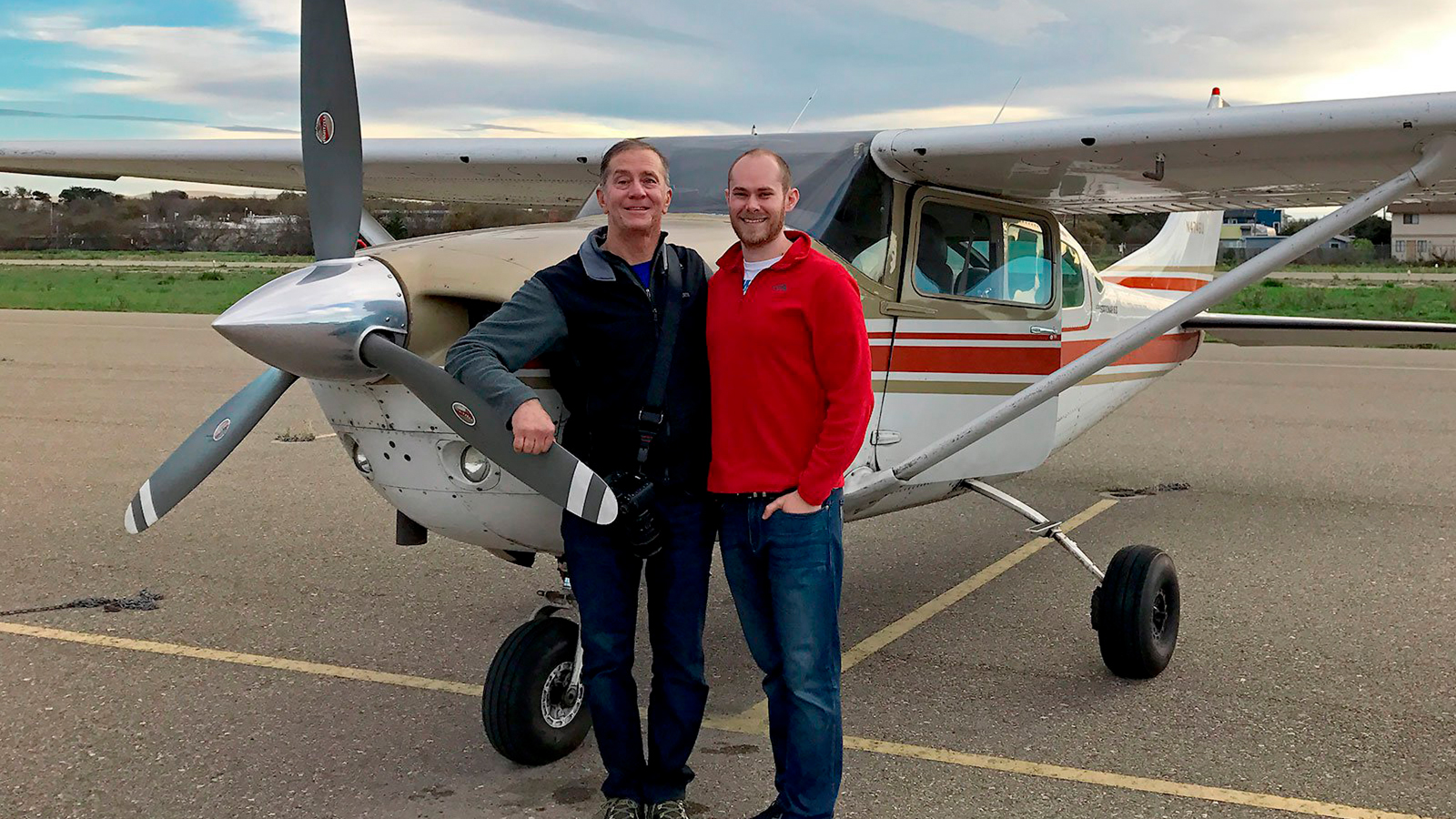
The project involved a detailed aerial survey of a 37-square-mile area over the City of Los Banos, California. Using a manned aircraft equipped with a high-resolution mirrorless camera, they captured vertical imagery of the entire city.
The images were rapidly processed in PIX4Dmatic to identify neglected, green swimming pools — a prime breeding site for mosquitoes. The final deliverable was a live, collaborative, online map pinpointing each problem pool and allowing for targeted and efficient eradication efforts.
Aerial mapping for efficient vector control
Mark and Steven had heard from other mosquito abatement districts that imagery could be delivered months after acquisition; in one case, even up to 6 months after the flight. They saw an opportunity to deliver faster with an actionable dataset. The client was astonished that this kind of rapid turnaround was even possible.
Instead of waiting for public complaints and dispatching teams to individual locations, this project provided a real-time, city-wide output, allowing the mosquito abatement district to identify and address nearly one hundred previously unknown breeding sites throughout the city!
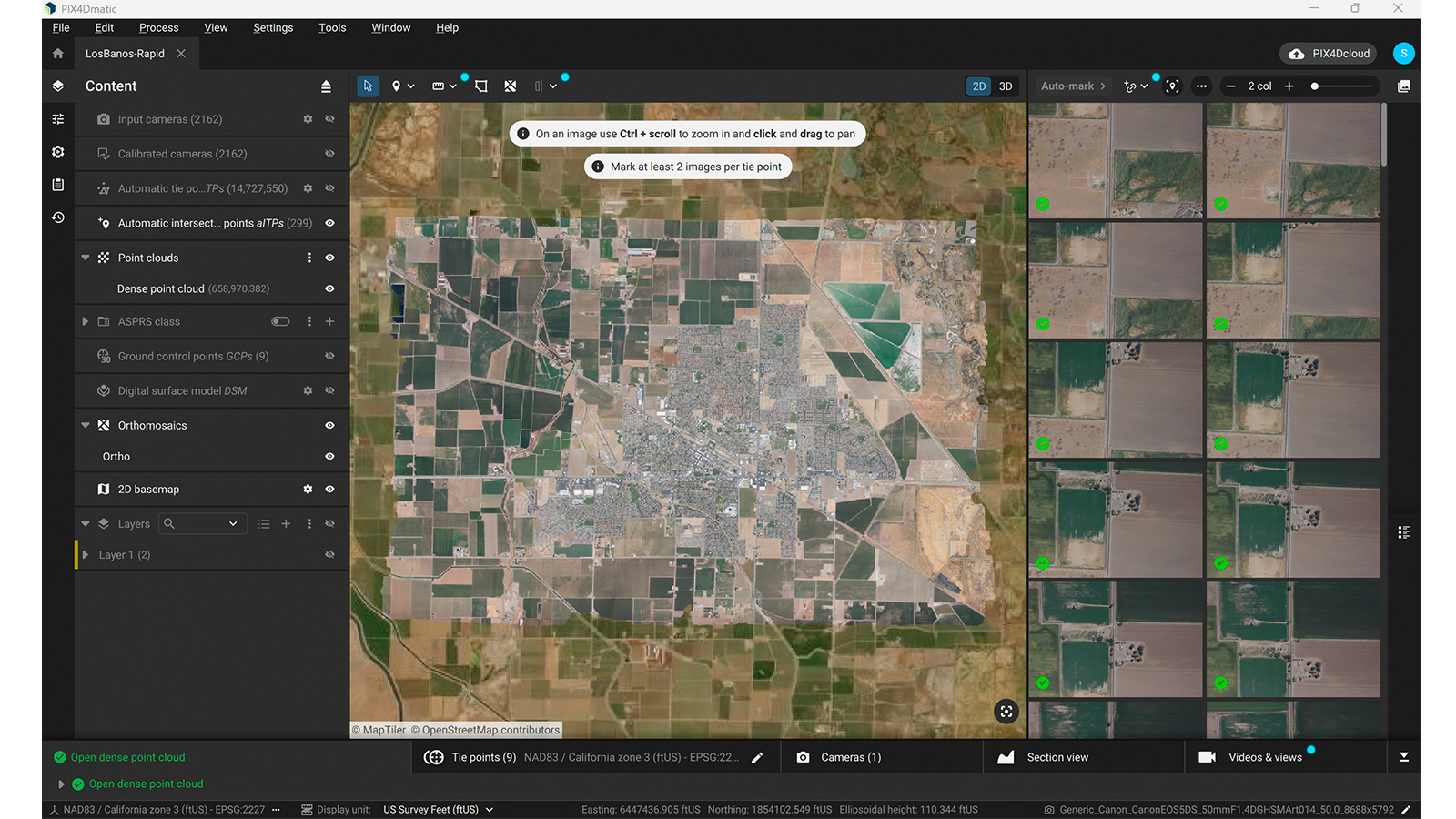
The use of a manned aircraft allowed them to rapidly collect data over a large urban area. On the software side, PIX4Dmatic's rapid processing ability was essential to analyze the vast amount of imagery and produce results within the tight 24-hour timeframe.
They used the “Share to PIX4Dcloud” feature to share the project with a web link, switching effortlessly from desktop processing to the collaborative PIX4Dcloud platform. PIX4Dcloud was key to overcoming delivery challenges, providing a seamless and collaborative platform for the client.
Geospatial solutions for public health
The primary challenge was not in collecting or processing the data, but in delivering it to the mosquito abatement district in a truly usable format. Initial ideas, like local Google Earth KML files, were too restrictive, limiting access to a single computer, while other online mapping services couldn't handle the large file sizes or display the imagery at a usable resolution.
The solution was PIX4Dcloud. It provided a live, web-based portal where the entire district team—both in the office and in the field—could access the map, view the underlying imagery, and collaborate in real-time to coordinate their response efficiently.
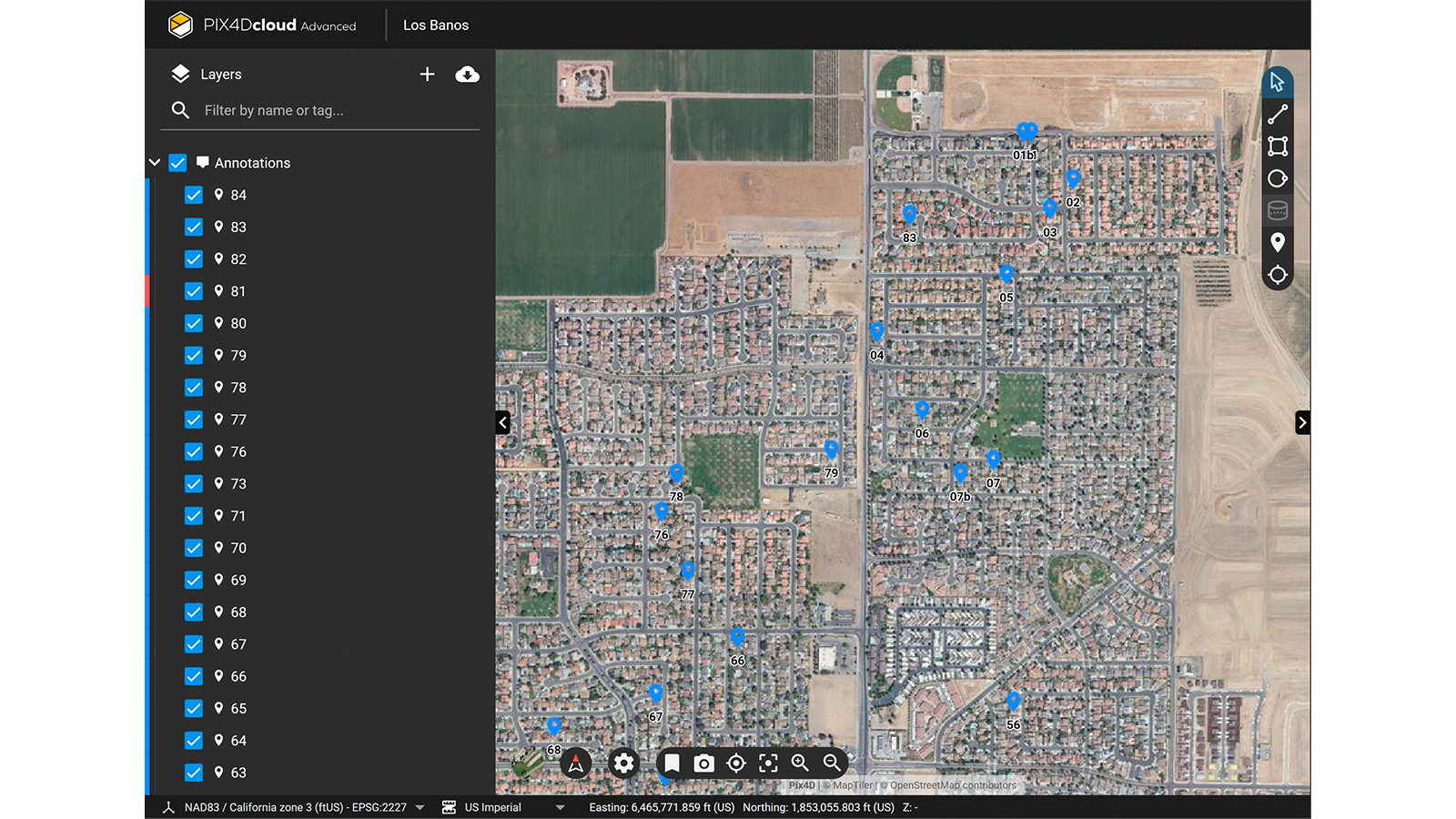
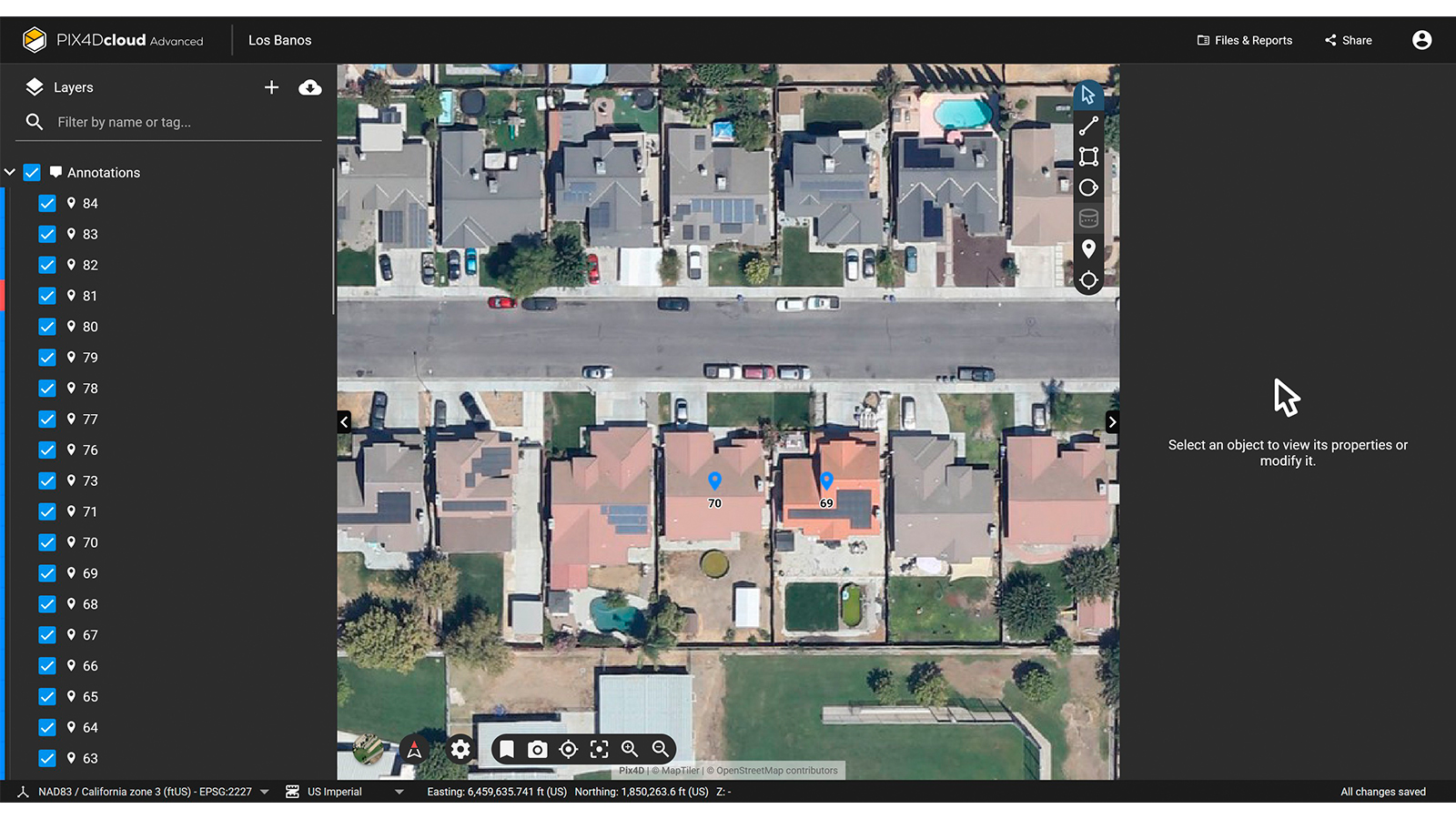
PIX4Dmatic's rapid processing capabilities were crucial for the project's success, allowing for a quick turnaround from data collection to delivery. PIX4Dcloud provided a "live portal" that enabled seamless collaboration between teams in the field and in the office, allowing them to work together efficiently to address the identified mosquito breeding grounds. The team at West Coast Aerial Photography, Inc. has been using Pix4D software for over a decade, trusting the quality and data accuracy.
Project details
| Location | Los Banos, California |
| User | West Coast Aerial Photography, Inc. |
| Area surveyed | 37m² |
| Software used | PIX4Dmatic, PIX4Dcloud |
| Hardware used | Manned aircraft, DSLR camera, custom-built workstation with AMD Threadripper CPU, NVDIA GPU, AND 256GB of RAM |
| Images captured | 2162 |
| Processing time | Flew, processed, and delivered data to the client within 24 hours |
| GSD | 10 cm GSD |
Photogrammetry protects the community
The project will have a significant impact on the mosquito abatement district's ability to combat mosquito-borne diseases going forward. This method allows for a more significant and immediate impact on minimizing the disease-carrying mosquito population. This new approach will enable health officials to effectively disrupt the mosquito breeding cycle and protect the community. The client was happy, stating that “the data and format are excellent and turnaround time outstanding.”
This project represents a leap forward in public health and vector control, transforming the fight against mosquito-borne diseases from a reactive to a proactive strategy. Its special nature lies in the unprecedented speed and efficiency with which a large area was surveyed and actionable data was delivered.
“We've been with Pix4D since the beginning, and their software's growth has directly empowered ours. On a project like this, where every hour counted, the processing speed of PIX4Dmatic was a game-changer. Being able to process a city-wide dataset and then share it instantly on PIX4Dcloud for collaborative action is a testament to how Pix4D’s software has evolved. The team at Pix4D is able to provide the tools that let us deliver not just data, but critical, time-sensitive solutions" – Steven Holtzman, COO, West Coast Aerial Photography, Inc.
Preparations are already underway for flights in the early spring, where the data will be most impactful in limiting the mosquito populations.


